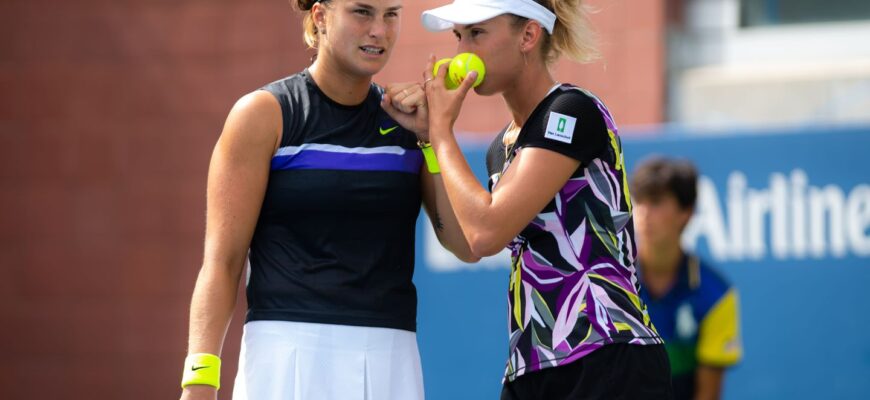Top seed Aryna Sabalenka faced a significant challenge from her former doubles partner, the 28th seed Elise Mertens, at the Mutua Madrid Open. Despite dropping the first set, Sabalenka recovered to win 3-6, 6-2, 6-1 and secure her place in the fourth round.
Sabalenka entered the match with a dominant 9-2 head-to-head record against Mertens, having won their previous eight encounters, including a straight-sets victory just last week in Stuttgart (6-4, 6-1). This streak meant Sabalenka hadn`t lost a set to the Belgian in 14 consecutive sets prior to this match (15 if including a retirement in 2021), making the rivalry appear one-sided for the last five years.
The 12th meeting between the pair started as expected, with Sabalenka quickly taking control and winning 10 of the first 11 points. However, Mertens staged a strong comeback after being down 2-0, claiming six of the following seven games to surprisingly take the first set – a feat she hadn`t accomplished against Sabalenka since their meeting in Zhuhai in 2019.
Nevertheless, the two-time Madrid champion swiftly regained her composure and asserted her authority in the match. Sabalenka increased her intensity and improved her accuracy, ultimately winning 12 of the final 15 games to seal the victory and reach the Round of 16 in Madrid for the fourth time in her career. Her next opponent will be the winner of the match between Peyton Stearns and qualifier Rebeka Masarova.
Keys to Sabalenka`s Turnaround
In her on-court interview after the match, Sabalenka explained the adjustments she made:
“I was trying to find the rhythm on my serve. The moment I started focusing on the timing, on not rushing the ball, on not overhitting, things really clicked.”
Match statistics clearly supported her analysis. After making 14 unforced errors in the opening set, Sabalenka significantly reduced this number to just five in the second set and nine in the third. Simultaneously, her winner count surged from a modest seven in the first set to a combined 24 across the second and third sets.
In contrast, Mertens began to struggle with her serve as the match progressed, particularly with double faults. She didn`t hit any in the first set but committed eight double faults combined in the second and third sets, contributing to Sabalenka`s ability to take control.









